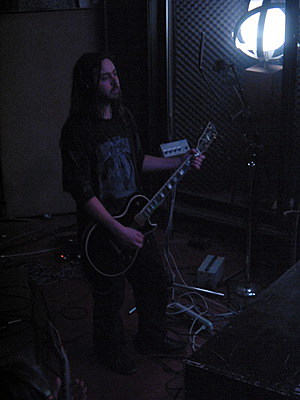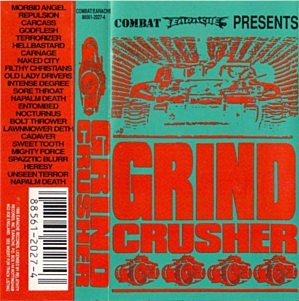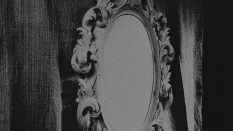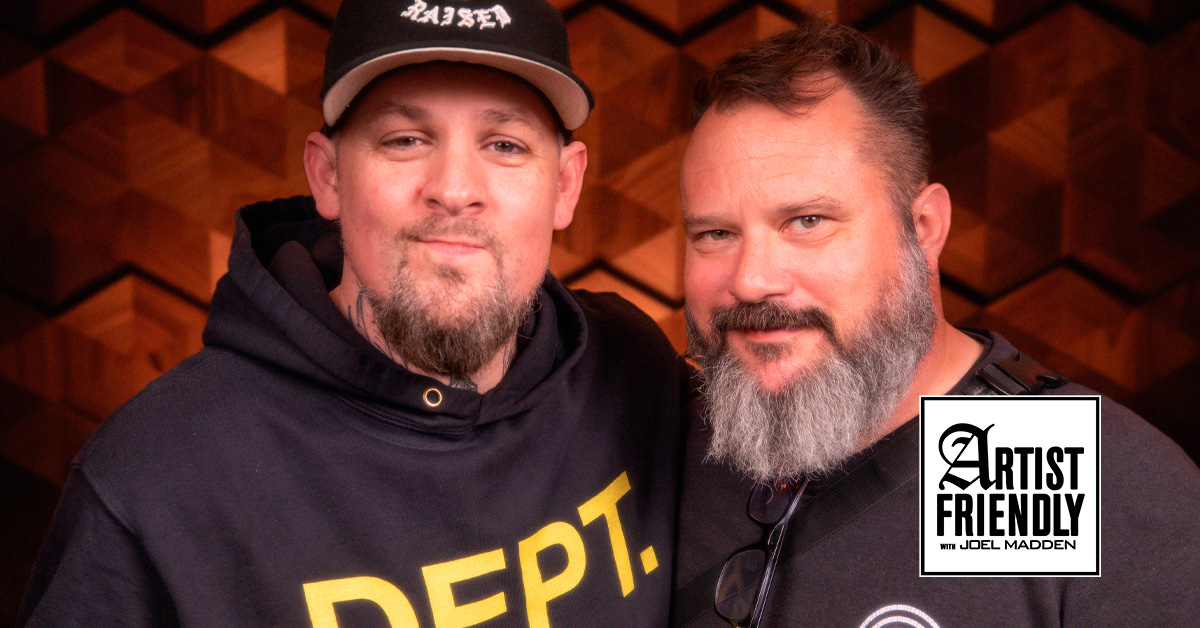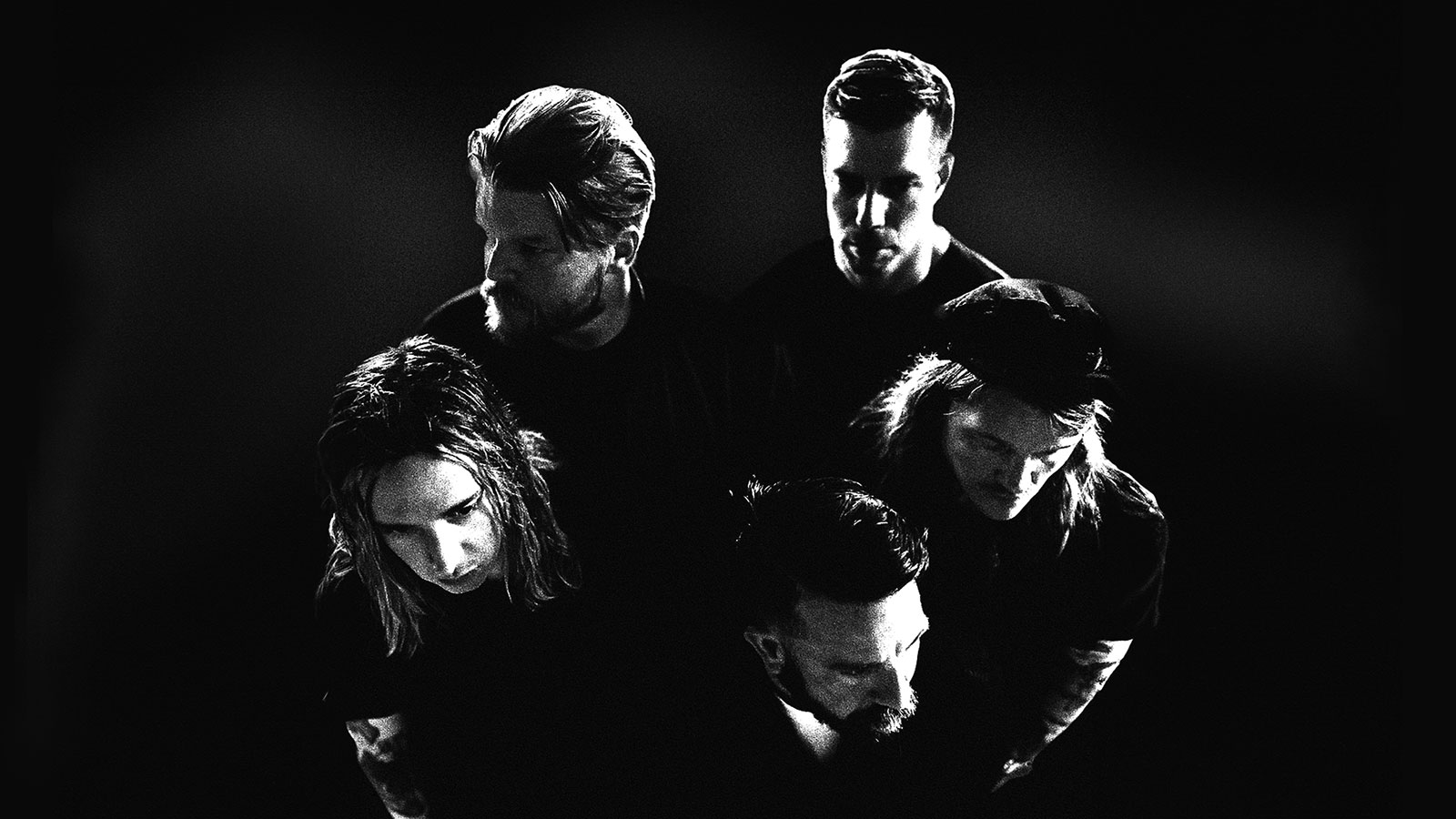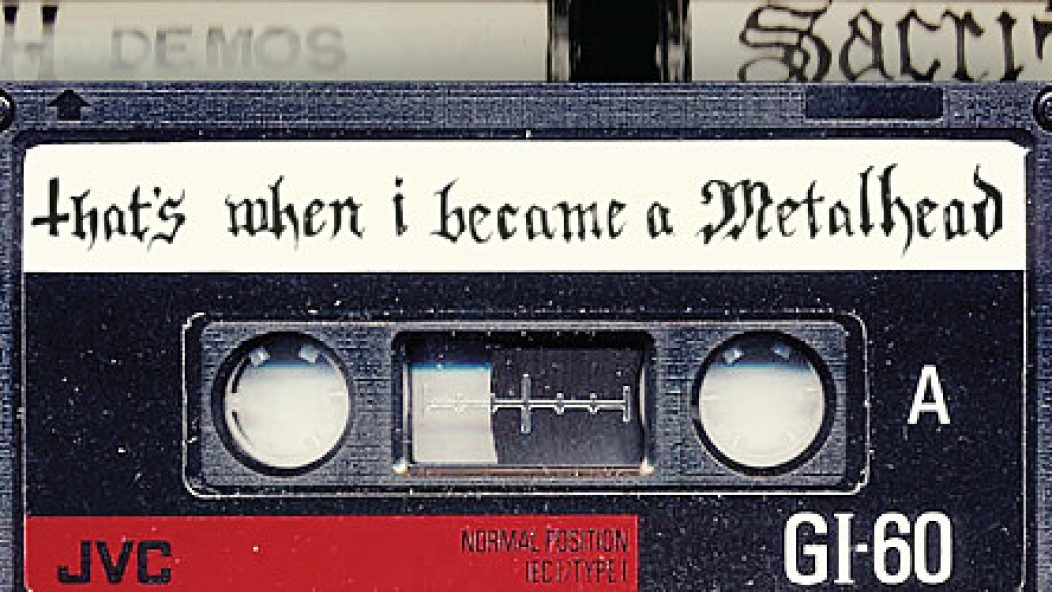
That's When I Became a Metalhead: John Cobbett
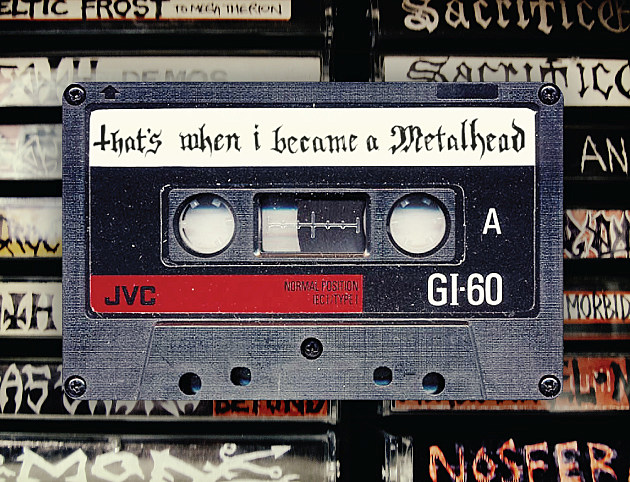
Welcome to the inaugural interview for THAT’S WHEN I BECAME A METALHEAD. I’d been reminiscing about halcyon days as a mid-’80s pre-teen metalhead, thinking about first records, first cassettes, and first t-shirts, when it struck me: While I could recite chapter-and-verse the story of how I got into this music, I had yet to stumble across a source that was satisfactorily telling the stories of how the people I respected and admired in the scene got into this music. So I got it into my head that it would make a great series of interviews, and began to formulate ideas and questions in my head.
I wanted to hear tales of first albums, first concerts, friends and family members who encouraged, or attempted to sabotage the lifelong love of various metalheads in this genre. For a lot of us, this music is the closest thing to religion that we have, so a history of how we were indoctrinated intrigued me.
I want to hear from everybody involved in the scene: Influential musicians, artists and filmmakers, people who work in PR, as well as fans, with the hope of turning this into a series of interviews, many of which will be posted here at Invisible Oranges. Those interviews not appearing here will be posted at a blog currently in development.
For the first interview in this series, I was lucky enough to speak with John Cobbett, founder and currently guitarist in the mighty Hammers of Misfortune, as well as a former member of highly respected bands such as Ludicra, Slough Feg, and Amber Asylum. John had a ton of amazing stories to tell about his days as a hardcore kid in D.C., and how his love of metal sprouted out of not knowing he was supposed to hate it.
. . .
How did you first find this music?
I was a hardcore kid in D.C. when hardcore was born, surrounded by what would become some of the most legendary bands of all time. The first show I ever saw that changed my life . . . I was gonna go see a punk rock show at the 9:30 Club, and the bill was gonna be Minor Threat and the Bad Brains. I believe this was in 1981.
How old were you at the time?
Fourteen, I believe. Minor Threat cancelled that night, and this band called The Obsessed played instead. This was back when The Obsessed had this guy named Vance on lead vocals. He was kinda like a doom-metal Stiv Bators: he was smashing things and rubbing peanut butter all over himself. Throwing shit and rolling around in glass and rubble onstage. And this was the Obsessed! I mean, THE OBSESSED—Wino on guitar, Doctor Butcher on bass, and the Slave on drums!
[Since] I didn’t know all the “rules” of punk, I didn’t know I was supposed to hate this [music] just because they had long hair. I just thought it was the most amazing thing I’d ever seen in my life. And this is in a small club. The 9:30 Club was in a different location back then, and it was a pretty small place.
So starting out as a hardcore kid, when did you first discover your affinity for metal?
That first time, because seeing the Obsessed blew me away. And then after the Obsessed went on, the Bad Brains! Can you imagine being 14 years old and seeing the Bad Brains in their prime? With NO indication of what you were in for at all?
It would have blown your mind.
It blew me away! I’m still blown away. That [show] ruined my life. I coulda been normal! I coulda had a career! You put that in front of an unprepared 14 year old, that’s gonna change the kid’s life.
How old were you when you started playing guitar?
I was probably 12 or 13. I wanted to play punk rock!
When I was really young kid, all the neighborhood kids, the big kids, the ones who, like, smoked cigarettes and stuff, I would go over to their houses and they’d always be playing the Sweet and Aerosmith and KISS. Ted Nugent, Blue Öyster Cult, Bowie. I remember as a really young kid, 6 years old, looking at the Diamond Dogs album cover, and just being like “Oh my god! What IS that? That’s scary as fuck”!
So is it safe to say that the Obsessed gig was your first introduction to ‘metal’, per se?
Well, if you wanna talk about what’s now considered “metal”, then yes. But I mean, the Bad Brains were out the door! Insane! The amount of energy they created onstage was unbelievable. And you know, I was hooked, man, from there on out. And I went to see the Obsessed any time I could from then on out.
I was pissed when Wino joined Saint Vitus, because I loved The Obsessed. I just couldn’t understand why Wino would do that, because the Obsessed were one of my favorite bands, locally. So I never really made any distinction. Punk, metal, I didn’t give a fuck.
Then punk started getting really stuck-up, political, and preachy—and it got really unbearable. I was playing in a crossover band called Malefice at the time, and we were really super-into Venom when they first came out. Venom changed everything for me! When I heard Black Metal, I was really fed-up with all the infighting and politics and specious posing of the punk scene, [of] the violence that was creeping in. As soon as I heard Venom, I started going headlong into the burgeoning metal scene of the time, which was everything from Iron Maiden to Slayer, Metallica, Anthrax, Raven. I was really into Raven. And this was later in my teens: 17, 18.
At what point in your life did you realize this music was going to be an intrinsic part of your identity for the rest of your life?
I think I was pretty doomed at that Obsessed/Bad Brains show. That was a big turning point. Because not only was I starting to realize that I wanted to make a band, and learn how to play guitar, but at that point I [also] realized that there was a local scene, that there was a place [nearby] to do it.
You weren’t all alone with it.
So I immediately just started asking everybody I could, “What do you need [to start a band]? Do you need an amplifier? I mean, how do you do this stuff”? Some guy at the local record shop gave me a Sears guitar, and I messed around on that. Then I got a job working every day after school, the classic story, saved up for a shitty guitar, and borrowed an amp. Then, by the time I was 17, I had my first Marshall. I’d work my tail off so I could afford to buy this stuff.
. . .
. . .
Did you ever get to meet any of your heroes? What were your best and worst experiences?
I went to see Johnny Thunders at one of the last shows he played when he was alive. And his bass player was AWOL, probably out trying to score junk, and I was really just getting into the New York Dolls at the time. So I said to him “Mr. Thunders, I know all the songs, I can play the bass [for you]”. And he was like, “Yeah, kid, okay, whatevuh”, but then the bass player showed up. [Thunders] might have let me do it, if the bass player never showed up. Then a couple months later, he died.
What about this music creates such lifelong devotion in people?
When you become part of a subculture that most people don’t understand, it drives you [members] together. It drives you away from other things. It does become “your people”, your way of life. And that happened to me at a young age. I didn’t have the best family life, so the scene sort of became my family. And I learned all my life lessons and everything I knew from the scene and playing in bands. I was not a very well socialized kid, not very well adjusted. I was extremely, cripplingly shy, didn’t like anybody, didn’t get along with anybody until I got into the music scene. Then all of a sudden, for the first time, I felt like I belonged somewhere. Like, I’m NOT just a jerk, or a nerd, or a loser. All of a sudden, I felt like “Hey, these people aren’t assholes. I actually like them, I have something to talk about with them”. And then I wasn’t shy, because we’re talking about [things like] “Hey, did you hear the Negative Approach 7-inch?” “Yes, I did. I have an opinion! Let me hear yours”!
Back in the earlier metal scene, it was the same. To be metal [in those days], you were quite ostracized by a bunch of fucking know-it-all, smart-aleck, indie rockers. I remember having girls come over to my house, on a date or whatever, and look at my record collection. They’d be like “Ew, you’re a metalhead? I thought you seemed smart. Don’t you know that the only people who listen to metal are knuckle-dragging half-wits, misogynists, and homophobes”? You had to deal with a lot of that. Friends of mine were really angry with me, for liking stuff like Morbid Angel and Carcass when they first came out. [My friends] were like “How can you listen to that? What’s wrong with you? Don’t you know that music is for dickheads and rednecks”? They were really mad at me! I had friends yell at me! For listening to that stuff!
When Earache first released that tape, the one that had Morbid Angel, Napalm Death, Entombed, and Godflesh on it…
Grindcrusher?
Yeah, the cassette. it had those 4 bands on it, and I listened to that tape over and over again.
I was playing in a band [at the time], a Thin-Lizzy-meets-Metallica’s-first-album [kind of thing], your basic alcohol-powered rock and roll. And those guys were pissed! I tried to play the Grindcrusher cassette in the van, and they wouldn’t let me! Boy, I heard about that! Those blast beats? “That’s not a drum beat, that’s just a fuckin’ drumroll. How can you listen to that shit”?!
. . .
. . .
When you were listening to both punk and metal, did you ever have any conflict liking both? As a teenager in the late ’80s, at the same time as I was listening to simpering hair metal, I was getting into and digging thrash. I could listen to either and enjoy them.
I know what you mean. When Mötley Crüe first came out, all the punks I knew were into ’em, because they reminded us of The Sweet and Bowie. That was before the whole hair-rock thing exploded. Once Billy Idol and Madonna and Cinderella all started to look the same, that was when the backlash started. Mötley Crüe’s first album? I was down for that. I was down for Shout At The Devil too, but after that the whole thing got so disgustingly commercial, I stopped being interested.
At the time, you gotta understand that in the punk scene everything was getting so insufferably fucking sanctimonious. It was just preaching and straightedge and all this shit. I’m like, ‘Fuck you man, don’t tell me how to live my life! I’ll listen to fucking Mötley Crüe if I want’! I think a lot of that was rebelling, because the punk scene got so fucking uptight. And when I came out here [to California], I had friends here from D.C., and they were taken aback that I was listening to Mötley Crüe: “What happened to you? You used to be such a smart guy! You liked all the right bands; you had all the right politically-correct beliefs, now you’re listening to THAT!? What happened to you? You’re METAL now?! What went wrong? Did you get a lobotomy”?! I got a lot of that, but I was like “No, fuck you! Fuck you and your sanctimonious politics, what the fuck do you know about politics? Don’t tell me what to feel guilty about, and who to feel sorry for”! I held fast to those punk ideals: “I’ll make up my mind about that myself”. So I found myself alone a lot. But, going back to being a little kid, I like being alone. I’m okay with being alone. I don’t need a support group. It’s nice to have one, but I don’t need that.
[As for] metal now . . . I had a conversation with some people on Twitter about this a couple weeks ago, and metal is more acceptable now, in general, than I’ve ever seen it. I mean, NOW it’s COOL! It’s never been COOL before. It was always [music] for dropouts, and people that didn’t belong, and now, all of a sudden, it’s cool? That bothers me . . . [metal] always used to be this thing where, if you had the guts to get laughed at by everybody, and have everybody think you’re some kind of a Neanderthal… you had to be willing to accept that [kind of] ostracizing in order to be into this kind of music. But now it’s just cool. No, it’s easy. And [as a result] the quality [of the music]’s going down.
Do you see what’s happening now as a return to the late ’80s where metal was the kind of thing that everybody could get into, because it was on MTV all the time?
In the late ’80s, there was a very clear distinction between real metal and false metal. The pop stuff, the hair stuff- that wasn’t what we were talking about; we were talking about thrash. Nowadays, it’s not so clearly defined. Nowadays, there are 10 million bands that are ALL really necro and extreme, and you’re supposed to differentiate from what? Thirty other kinds of metal subgenres? The culture has gotten exponentially bigger, and [in doing so], it’s just gotten smaller and smaller. I don’t know how to describe it any better [than that]; it’s not monolithic culture anymore, it’s just so scattered. It blows my mind how much music I haven’t heard- you can’t keep track of it.
The only thing I can do as the guy who makes the music, is just not give a fuck. Because if [you’re a musician and] you pay attention to what’s popular this week, you’re just done-for. All these bands are gonna be forgotten about- 99 percent of them are all gonna be forgotten about in a year.
Do you foresee metal ever going back to being so unpopular?
Look at everything that’s changed: The entire delivery system has changed, the entire context has changed! Who was it that said, “the medium is the message”? The medium has changed! Everything about it has changed, so there is no going back. There is no cycling back around.
The hair metal scene got so much attention, and got so big on MTV, that a whole generation of people just associated metal with spandex and hairspray and [there are] people who still think that’s what it is.
But then there were the people who didn’t have that experience, and to them, metal was Emperor, Mayhem, and all these other cool bands. [To them] it’s NOT “dumb”, and it doesn’t have the stigma that it once had. People actively go out of their way to form metal bands. Even bands that WEREN’T metal are trying to be metal now, trying to get their cred [laughs]. Everybody wants to be considered metal now, even if 10 or 15 years ago, they wouldn’t be caught dead. All those bands like Soundgarden and Alice in Chains back in the ’90s—clearly their music was doom, but they would NEVER have called themselves metal [then]. It was the kiss of death. Bands like Poison and Cinderella were still fresh in everyone’s mind. And you kinda can’t fault them for that.
But then I was so disconnected from all that [Seattle] stuff anyway. I didn’t really even think about it. Later on, I forgave Alice in Chains and Soundgarden for being popular. I forgave Nirvana for being top 40. I guess they were pretty good.
Let me pose a final question to you: Do you think metal is adversarial because people scorn it, or do people scorn metal because of its adversarial nature?
I don’t think people DO scorn metal, anymore.
Well, I meant historically…
I can imagine Black Sabbath was scorned because they were minimalist, and because they didn’t play to the intellectual. They weren’t fashionable. But definitely since the ’80s, metal was scorned because it got a really bad reputation from all those hair bands. Those hair bands ruined it for everybody. That was a bubble, and when it burst it was dark days for everybody. A lot of metal bands and labels lost their way in the ’90s.
Could it also be argued, though, that hair metal and grunge drove metal underground, where it needed to be to reinvent and thrive?
Well, yeah, you saw a lot of really great things happen. Death metal happened, black metal happened, and produced some of the best metal albums ever made. Morbid Angel picked up where Slayer left off, and Mayhem picked up where Venom left off.
When I first heard Mayhem’s and Emperor’s first records, I was like “Where has THIS been? This is fantastic! I’ve been saved”! It wasn’t just the blastbeats; it was the entirely different attitude. This idea that this music is NOT always supposed to be brutal and heavy and well-produced-as-fuck. It didn’t matter; it was just supposed to be evocative . . . to evoke some sort of feeling. That was a really interesting twist.
It was supposed to evoke feelings of awe and fear. In a different way than death metal, in that death metal was basically just all about trying to pummel you, just trying to be brutal. Black metal was doing something a little different that I thought was fantastic: the emotional quality of it.
So metal has changed the course of my life several times, and I’ve “discovered” it several times, because it keeps changing. And this time I’m not sure how things are gonna pan out because it’s gotten so fucking acceptable. And you have arguments now on the internet that just go around and around.
I have my beliefs and I’ll continue to live by them. At the end of the day you just have to follow your heart, even as cheesy as that sounds. And forget about what everyone else thinks. People are gonna talk shit because that’s what people do. If you can’t handle that, then don’t read it. Don’t pay attention.
. . .
